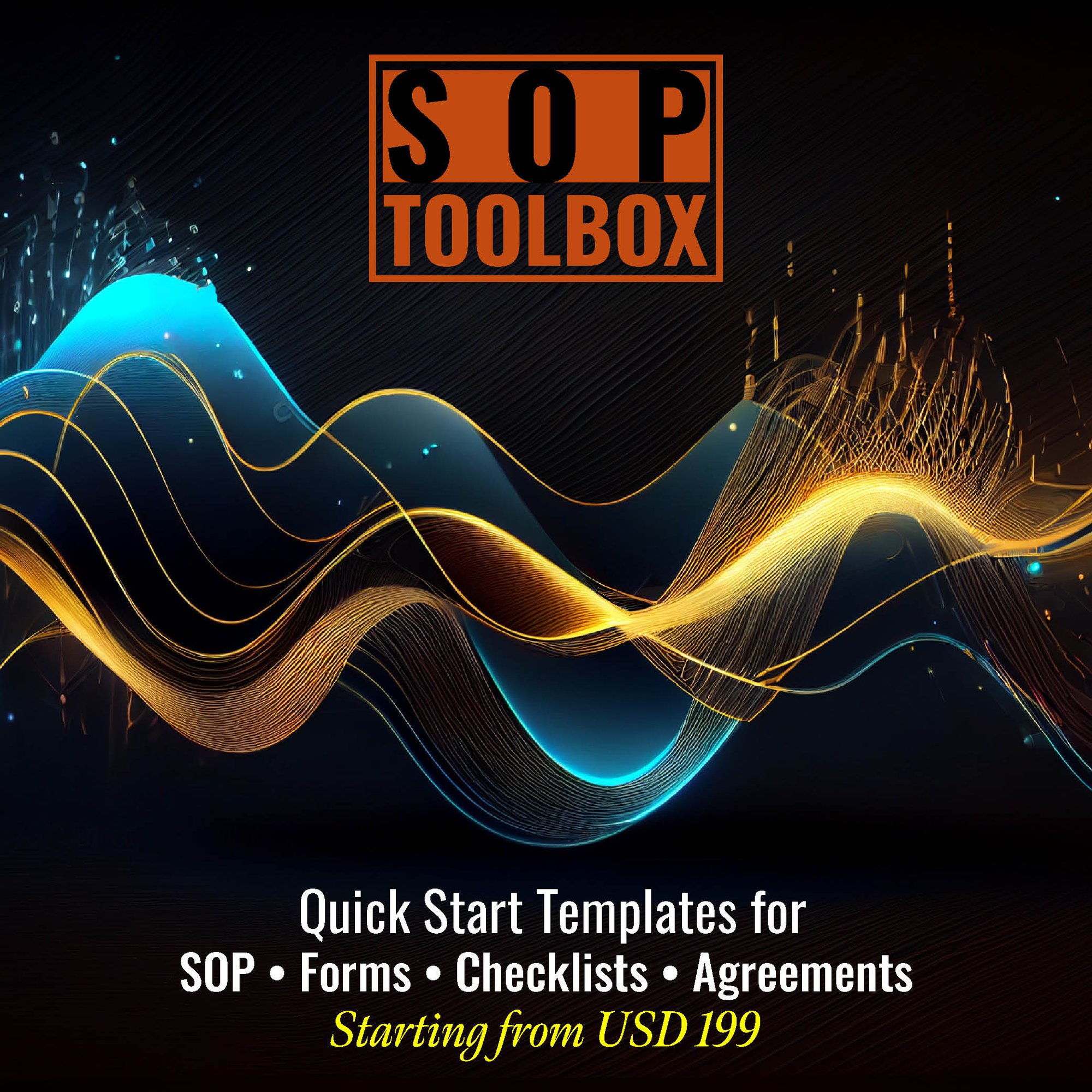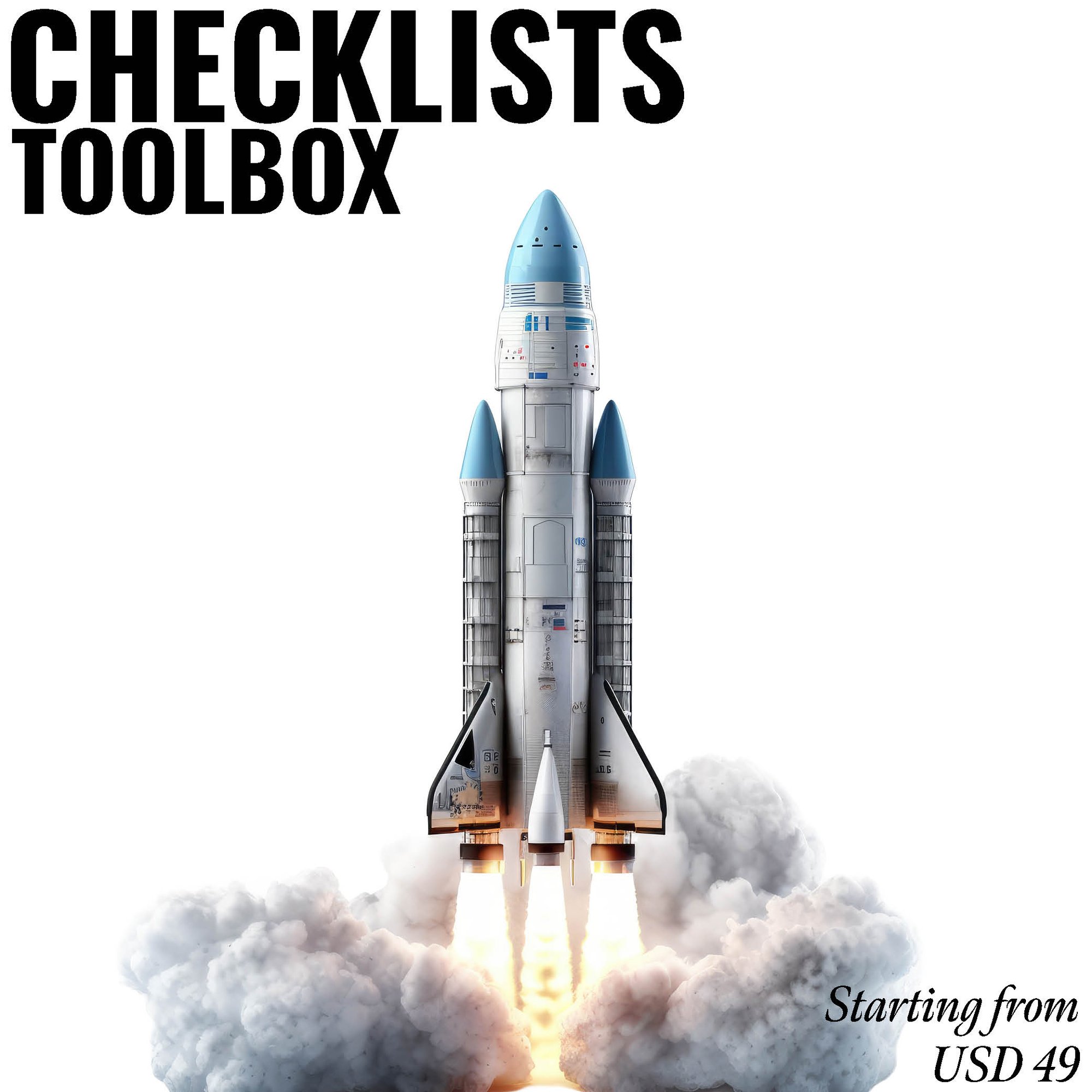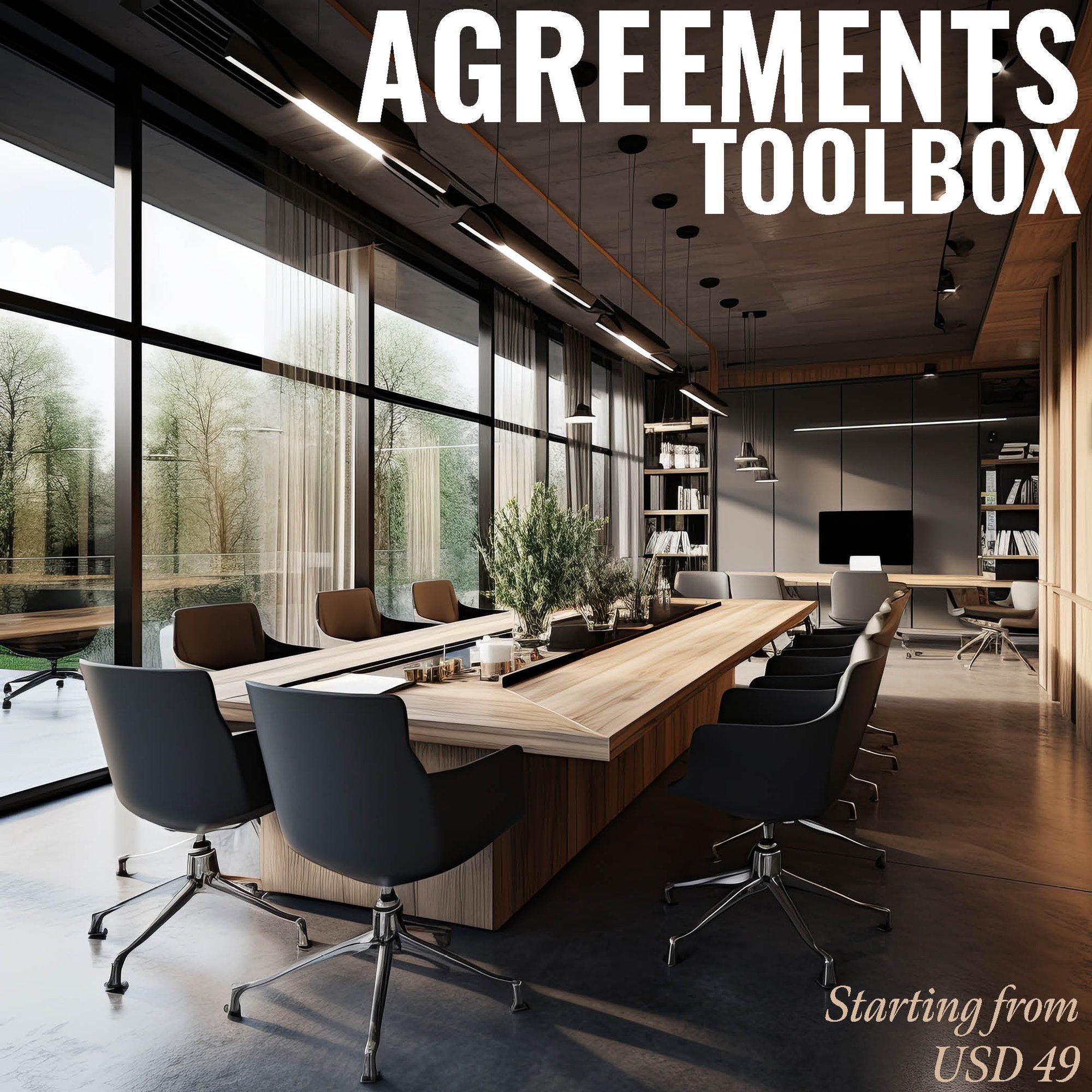Engaging in "Other Activities Related to Real Estate" offers a range of benefits in the real estate industry:
-
Diversification: These activities allow real estate professionals to diversify their services, reducing dependency on a single revenue stream like property sales or leasing. This diversification can stabilize income and mitigate market fluctuations.
-
Income Generation: Providing services such as property management, appraisals, consulting, or real estate marketing can generate additional income streams for real estate professionals, increasing their overall earnings.
-
Enhanced Client Relationships: Offering a wider array of real estate-related services can strengthen client relationships. Clients can turn to a trusted professional for various real estate needs, building long-term partnerships.
-
Market Knowledge: Involvement in various real estate activities provides in-depth market knowledge and insights, which can be invaluable for making informed investment and strategic decisions.
-
Competitive Advantage: A diverse service portfolio can give real estate professionals a competitive edge by offering a one-stop solution for clients' real estate needs, attracting more business and referrals.
-
Adaptability: Real estate markets are subject to changes and trends. Diversified activities allow professionals to adapt to market shifts, ensuring ongoing relevance and success in the industry.
In summary, "Other Activities Related to Real Estate" provide opportunities for income diversification, enhanced client relationships, market knowledge, and adaptability, benefiting professionals in the dynamic and competitive real estate sector.
CLICK HERE to download the List of SOPs Document in PDF format. Please share this document with your clients, colleagues and senior officers.
Top 50 Standard Operating Procedures (SOPs) for Other Activities Related to Real Estate
SOP-1096-001: Standard Operating Procedure for Property Acquisition Process
SOP-1096-002: Standard Operating Procedure for Due Diligence on Real Estate Transactions
SOP-1096-003: Standard Operating Procedure for Property Valuation Procedures
SOP-1096-004: Standard Operating Procedure for Lease Agreement Preparation and Execution
SOP-1096-005: Standard Operating Procedure for Property Inspection and Evaluation
SOP-1096-006: Standard Operating Procedure for Tenant Screening and Selection
SOP-1096-007: Standard Operating Procedure for Lease Renewal and Termination
SOP-1096-008: Standard Operating Procedure for Property Maintenance and Repairs
SOP-1096-009: Standard Operating Procedure for Emergency Response and Crisis Management
SOP-1096-010: Standard Operating Procedure for Environmental Impact Assessment in Real Estate
SOP-1096-011: Standard Operating Procedure for Zoning and Land Use Compliance
SOP-1096-012: Standard Operating Procedure for Real Estate Investment Analysis
SOP-1096-013: Standard Operating Procedure for Property Tax Assessment and Payment
SOP-1096-014: Standard Operating Procedure for Title Search and Verification
SOP-1096-015: Standard Operating Procedure for Land Development Planning
SOP-1096-016: Standard Operating Procedure for Real Estate Marketing Strategies
SOP-1096-017: Standard Operating Procedure for Negotiation and Closing of Real Estate Deals
SOP-1096-018: Standard Operating Procedure for Dispute Resolution in Real Estate Transactions
SOP-1096-019: Standard Operating Procedure for Documentation and Record Keeping
SOP-1096-020: Standard Operating Procedure for Real Estate Portfolio Management
SOP-1096-021: Standard Operating Procedure for Real Estate Regulatory Compliance
SOP-1096-022: Standard Operating Procedure for Facility Management in Real Estate
SOP-1096-023: Standard Operating Procedure for Sustainable Real Estate Practices
SOP-1096-024: Standard Operating Procedure for Real Estate Technology Adoption
SOP-1096-025: Standard Operating Procedure for Real Estate Data Security and Privacy
SOP-1096-026: Standard Operating Procedure for Property Insurance and Risk Management
SOP-1096-027: Standard Operating Procedure for Real Estate Market Research
SOP-1096-028: Standard Operating Procedure for Real Estate Financial Reporting
SOP-1096-029: Standard Operating Procedure for Vendor and Contractor Management
SOP-1096-030: Standard Operating Procedure for Real Estate Legal Compliance
SOP-1096-031: Standard Operating Procedure for Community Engagement in Real Estate Projects
SOP-1096-032: Standard Operating Procedure for Affordable Housing Development
SOP-1096-033: Standard Operating Procedure for Real Estate Ethics and Professional Conduct s
SOP-1096-034: Standard Operating Procedure for Real Estate Employee Training and Development
SOP-1096-035: Standard Operating Procedure for Lease Agreement Enforcement
SOP-1096-036: Standard Operating Procedure for Real Estate Software Implementation
SOP-1096-037: Standard Operating Procedure for Real Estate Performance Metrics and KPIs
SOP-1096-038: Standard Operating Procedure for Real Estate Market Trends Analysis
SOP-1096-039: Standard Operating Procedure for Real Estate Portfolio Diversification
SOP-1096-040: Standard Operating Procedure for Real Estate Asset Disposition
SOP-1096-041: Standard Operating Procedure for Energy Efficiency in Real Estate
SOP-1096-042: Standard Operating Procedure for Real Estate Market Forecasting
SOP-1096-043: Standard Operating Procedure for Diversity and Inclusion in Real Estate
SOP-1096-044: Standard Operating Procedure for Real Estate Investment Risk Assessment
SOP-1096-045: Standard Operating Procedure for Real Estate Crisis Communication
SOP-1096-046: Standard Operating Procedure for Real Estate Branding and Reputation Management
SOP-1096-047: Standard Operating Procedure for Real Estate Auction Procedures
SOP-1096-048: Standard Operating Procedure for Real Estate Due Diligence on Joint Ventures
SOP-1096-049: Standard Operating Procedure for Real Estate Digital Marketing
SOP-1096-050: Standard Operating Procedure for Real Estate Stakeholder Communication
.jpg?width=648&height=339&name=Standard%20Operating%20Procedure%20-%20SOP%20ToolBox%20(1).jpg)
SOP ToolBox: If you are reading these lines, I am sure you are looking for Standard Operating Procedure guidelines or SOPs itself. In both the cases, searching in internet will not be yielding any great help. Because no company shares their SOP Development Process and certainly don’t share their SOP Documents. The best way to develop an SOP is creating one for yourself. At Fhyzics, we write SOPs day-in and day-out for companies across the globe including some of the Fortune 500 organisations. Our charge ranges from USD 5000 to USD 50000 depending upon the number of processes to be covered. Certainly, this is not affordable to small and mid-size organisations. Hence, we decided to create this SOP ToolBox to disseminate our 8-Step SOP Development Life-Cycle and best practices at an unbelievably low price.
I always say, writing an SOP is somewhere between art and science. So far you may be clueless on where to start and how to progress on an SOP? This will not be the case after you diligently go through this SOP ToolBox. We have summarised all our secrets here to get you started and to deliver a stunning SOP to your management.
-
Agencies, real estate escrow
-
Agents' offices, real estate escrow
-
Consultants', real estate (except appraisers), offices
-
Escrow agencies, real estate
-
Fiduciaries', real estate, offices
-
Landman services
-
Listing services, real estate
-
Real estate asset management services (except property management)
-
Real estate consultants' (except agents, appraisers) offices
-
Real estate escrow agencies
-
Real estate escrow agents' offices
-
Real estate fiduciaries' offices
-
Real estate listing services
1. Standard Operating Procedures (SOP) Manual for Accounts Department
2.Standard Operating Procedures (SOP) Manual for Finance Department
3. Standard Operating Procedures (SOP) Manual for Customer Service
4. Standard Operating Procedures (SOP) Manual for CRM Department
5. Standard Operating Procedures (SOP) Manual for Credit Department
6.Standard Operating Procedures (SOP)Manual for Treasury Department
7.Standard Operating Procedures (SOP) Manual for Human Resources (HR) Department
8. Standard Operating Procedures (SOP) Manual for Training Department
9. Standard Operating Procedures (SOP) Manual for Learning & Development Department
10. Standard Operating Procedures (SOP) Manual for Administration Department
11. Standard Operating Procedures (SOP) Manual for Front Office
12. Standard Operating Procedures (SOP) Manual for House Keeping
13. Standard Operating Procedures (SOP) Manual for Safety Department
14. Standard Operating Procedures (SOP) Manual for Security Department
15. Standard Operating Procedures (SOP) Manual for Facilities Management Department
16. Standard Operating Procedures (SOP) Manual for Vigilance Department
17. Standard Operating Procedures (SOP) Manual for Legal Department
18. Standard Operating Procedures (SOP) Manual for Information Technology (IT) Department
19. Standard Operating Procedures (SOP) Manual for Sales & Marketing Department
20. Standard Operating Procedures (SOP) Manual for Design & Engineering
21.Standard Operating Procedures (SOP) Manual for Procurement Department
22. Standard Operating Procedures (SOP) Manual for Production
23. Standard Operating Procedures (SOP) Manual for SRM Department
24.Standard Operating Procedures (SOP) Manual for Supply Chain Department
25. Standard Operating Procedures (SOP) Manual for Warehouse
26. Standard Operating Procedures (SOP) Manual for New Product Development Department
27. Standard Operating Procedures (SOP) Manual for Research and Development
28. Standard Operating Procedures (SOP) Manual for Quality Department
29. Standard Operating Procedures (SOP) Manual for Calibration Department
30. Standard Operating Procedures (SOP) Manual for Maintenance Department
- Pacific Office Properties
- Buena Vista Hospitality Group
- Oncourse Strategies
- Alaska Housing Finance Corp
- Douglas Emmett Inc
- Kintetsu Enterprises Co of America
- Ash Properties
- Hartman Income REIT
- Con Am Group
- Delaware State Housing Authority
- Calista Corp
- A F Gilmore Co
- South Dakota Housing Development Authority
- Southern Management Corp
- BBG
- Solidifi
- Ocean Properties, Ltd
- SMG
- Columbia Property Management
- Cerebral InfoTech, LLC
- South Metro Housing Options
- Longroad Asset Management, LLC
- Edison Properties, LLC
- FRP Holdings Inc
- Mediswipe Inc
- Fischbach And Dougherty Inc
- Tanglewood Property Group
- Eastlake, LLC
- Ravinia III
- Forum Place
- Ridge
- J And J Management Co op
- Stamford Square
- Housing Authority of New Orleans
- Major Systems Maintenance Division
- C L Co
- Donna Martin
- San Francisco Housing Authority
- Seattle Housing Authority
- Tower Burbank
- Bluegreen Vacations Corp
- Oil & Gas Asset Clrnghouse LLC
- Xome Holdings LLC
- Rentpath LLC
- Move Inc
- Temporary Accommodations Inc
- Grand Pacific Resorts Inc
- Welk Resort Group Inc
- Landmark Infrstrcture Prtners
- Flagship Resort Dev Corp
- Demographics
Demographics are the data that describes the composition of a population, such as age, race, gender, income, migration patterns, and population growth. These statistics are an often overlooked but significant factor that affects how real estate is priced and what types of properties are in demand. Major shifts in the demographics of a nation can have a large impact on real estate trends for several decades.
For example, the baby boomers who were born between 1945 and 1964 are an example of a demographic trend with the potential to significantly influence the real estate market. The transition of these baby boomers to retirement is one of the more interesting generational trends in the last century, and the retirement of these baby boomers, which began back in 2010, is bound to be noticed in the market for decades to come.
There are numerous ways this type of demographic shift can affect the real estate market, but for an investor, some key questions to ask might be: i) How would this affect the demand for second homes in popular vacation areas as more people start to retire? Or ii) How would this affect the demand for larger homes if incomes are smaller and the children have all moved out? These and other questions can help investors narrow down the type and location of potentially desirable real estate investments long before the trend has started.
- Interest Rates
Interest rates also have a major impact on the real estate markets. If you're considering buying a home with a mortgage it is beneficial to research interest rates using a mortgage calculator. Changes in interest rates can greatly influence a person's ability to purchase a residential property. That is because the lower interest rates go, the lower the cost to obtain a mortgage to buy a home will be, which creates a higher demand for real estate, which again pushes prices up.
It's important to note that as interest rates rise, the cost to obtain a mortgage increases, thus lowering demand and prices of real estate. However, when looking at the impact of interest rates on an equity investment such as a real estate investment trust (REIT), rather than on residential real estate, the relationship can be thought of as similar to a bond's relationship with interest rates. When interest rates decline, the value of a bond goes up because its coupon rate becomes more desirable, and when interest rates increase, the value of bonds decreases. Similarly, when the interest rate decreases in the market, REITs' high yields become more attractive and their value goes up. When interest rates increase, the yield on a REIT becomes less attractive and it pushes their value down. (To learn more about these effects, see How Interest Rates Affect Property Values.)
- The Economy
Another key factor that affects the value of the real estate is the overall health of the economy. This is generally measured by economic indicators such as the GDP, employment data, manufacturing activity, the prices of goods, etc. Broadly speaking, when the economy is sluggish, so is real estate.
However, the cyclicality of the economy can have varying effects on different types of real estate. For example, if a REIT has a larger percentage of its investments in hotels, it would typically be more affected by an economic downturn than a REIT that had invested in office buildings. Hotels are a form of property that is very sensitive to economic activity due to the type of lease structure inherent in the business. Renting a hotel room can be thought of as a form of short-term lease that can be easily avoided by hotel customers should the economy be doing poorly. On the other hand, office tenants generally have longer-term leases that can't be changed in the middle of an economic downturn. Thus, although you should be aware of the part of the cycle the economy is in, you should also be cognizant of the real estate property's sensitivity to the economic cycle.
- Government Policies/Subsidies
The legislation is also another factor that can have a sizable impact on property demand and prices. Tax credits, deductions, and subsidies are some of the ways the government can temporarily boost demand for real estate for as long as they are in place. Being aware of current government incentives can help you determine changes in supply and demand and identify potentially false trends.
For example, in 2009, the U.S. government introduced a first-time homebuyer's tax credit to homeowners in an attempt to jump-start home sales in a sluggish economy (only those who purchased homes between 2008-2010 is eligible). According to the National Association of Realtors (NAR), this tax incentive alone led 900,000 homebuyers to buy homes. This was quite a sizable increase, although temporary, and without knowing the increase was a result of the tax incentive, you may have ended up concluding that the demand for housing was going up based on other factors.
- Association of Certified Realtors of India
http://www.acri.in/ - Credai
https://credai.org/ - All India Real Estate Agents Association
https://www.aireaa.com/
The SOP Manual briefly describes about the process, services, Major firms, and challenges of this industry. The global rental activities market was valued at $2347 billion in 2017. The Asia Pacific was the largest geographic region accounting for $1138.2 billion or 48.5% of the global market. China was the largest country accounting for $687.6 billion or 29.3% of the global rental activities market.
Research By : Mohammed Ijas
Keywords: sop, manual, policy, sop meaning, sop full form, standard operating procedure, full sop, user manual, sop is, user guide, instruction manual, owners manual, sample sop, operators manual, sop example,standard operating procedure examples, abbreviation sop, standard operating procedure sample, milk sop, sop document, sop process,m manual, operating procedures, operating process, sop meaning in hindi, standard procedure, sop standard operating procedure, sop top, sop writing, standard operating procedures manual, sop meaning in english, sample sop for mba, standard operating procedures examples in office, product manual, sample sop for ms, maintenance manual, sop security, sop in research, sop in business, whats sop, standard of operation, sop set, sop procedure, sop marketing,sop training, sop hotel, sop, sop meaning business, sop form, sba sop,sop software, help manual, sop it, army sop, company sop, sop sap, o m manual, standard operating procedure examples for small business, shop manual, sop manual, sop meaning in business, purpose of standard operating procedures, sop full meaning, standard operating procedure meaning, sop military, sop standard, sop meaning medical, hr sop, sop production, purpose of sop, sop management, warehouse sop, sales sop, sop pharma, sop manufacturing, sop creation, sop laboratory, ms sop, sop full form in hindi, sop front office, sop customer service, sop online, gmp sop, sop purchasing, sop pharmacy, sop safety, sop for project management,sample sop for australian student visa, sop meaning in tamil, sop system, best sop, sop up, sop in english, sop for mechanical engineering, sop for university,sop in malay, sop lab, sop for business analytics, sop model, sop in pharmacy, developing sops, standard operating procedure examples manufacturing, sop full form in retail,sop full form in medical, sop engineering, sop application, writing standard operating procedures, procurement sop, sop maintenance,standard operating procedure nhs, sop clinical trial, sop operations,sop in construction, operating procedures manual, standard operating procedure ppt, standard procedure meaning, sop ppt, a sop, sop document meaning, sop def, sop full form in safety, sop quality control, sop for college, sop quality, sop service, types of sop, sop for engineering management, sop document sample, benefit of sop, preparing sop, standard operating procedure in hindi, sop for visa, sop compliance, sop protocol, sop aviation, sop meaning in chat, standard operating process, sop meaning military, sop for business management, standard operating procedure software, sop list, sop medical, sop logistics, sop project, sop for it department, sop call center, standard work procedures, sba sop 50 10, sop meaning in logistics, standard operating procedure laboratory, test sop, sop sample for ms, drafting sop, sops meaning in tamil, sops meaning in telugu, sop automotive, standard operating system, sop cafe, sop slideshare, sop ap, sop bank, sop in retail, creating standard operating procedures, sop admin, document control sop, pharmaceutical sop,sop in pharmaceutical industry, statement of purpose harvard, sop examples for ms, quality assurance sop, sop in clinical research, nursing sop, sop for transportation, sop policies, sops are specific to a process, sop in hindi, standard operating procedure for warehouse picking, master sop, list of sop for pharma, pharmaceutical sop examples, types of standard operating procedures, retail sop, sample sop for ms in mechanical engineering, standard operating protocol,sop supply chain, system operating procedure, sop rules, example of sop in research, sop in food industry, sop for international business management, sop for hospitality management, sop for hr department, army sop example, sop standard operating, office sop, hr standard operating procedures, preventive maintenance sop, sop for purchase department, human resources sop, fire department sops, information technology sop, operating procedure example, administration sop,sop for retail store, indian sop, construction management sop, sop hotel front office, example sop document, standard and procedures,working sop, sop for maintenance department, sop hrd department,sop full form in hotel industry, sop full, sop for human resource management, laboratory sop examples, standard operating procedure for quality control, sop for ms in mechanical engineering, sop meaning army, security standard operating procedures, sop machine, sample sop for internship, sop for hotel management, sample sop for masters, qa sop, developing standard operating procedures, standard operating procedure document, product recall sop, marketing statement of purpose, it standard operating procedures, equipment sop, sop purpose example, sop shipping, sop for sales and marketing,converting pos to sop, workshop sop, standard operating procedure manufacturing, digital marketing standard operating procedures, following standard operating procedures, sop ki full form, sop for nursing procedures, an sop, purchase sop for manufacturing company, sop a, statement of purpose for mba marketing, full meaning of sop, sop for research internship, research sop sample,vendor qualification sop, sop purchasing and receiving, sop meaning in visa, sop for admission, standard operating procedure medical office, sop in industry, sop sales marketing, navy sop, project management standard operating procedures, sop it support, standard operating manual, security operating procedures, statement of purpose for international business, procurement standard operating procedures, communication sop, sop full form in pharma, minimum sop, sop health and safety, product sop, sop for marketing department, sop in medical terms, sales standard operating procedure, sop purchase order, department sop, customer service standard operating procedures, clinical sop, marketing standard operating procedure, sop standard operating procedure example, construction standard operating procedures, standard of operations procedures manual sample, sop for facility management, sop full form in education, standard operating procedure in food industry, visa sop,sop for business administration, company sop meaning, sop work, sop operating procedure, sop for summer internship in engineering sample, general administration sop, sop for administrative duties.
Our SOP Templates’ clients are from the following States and Countries:
Alabama, Alaska, Arizona, Arkansas, California, Colorado, Connecticut, Delaware, Florida, Georgia, Hawaii, Idaho, Illinois, Indiana, Iowa, Kansas, Kentucky, Louisiana, Maine, Maryland, Massachusetts, Michigan, Minnesota, Mississippi, Missouri, Montana, Nebraska, Nevada, New Hampshire, New Jersey, New Mexico, New York, North Carolina, North Dakota, Ohio, Oklahoma, Oregon, Pennsylvania, Rhode Island, South Carolina, South Dakota, Tennessee, Texas, Utah, Vermont, Virginia, Washington, West Virginia, Wisconsin, Wyoming.
Afghanistan, Albania, Algeria, Andorra, Angola, Antigua and Barbuda, Argentina, Armenia, Australia, Austria, Azerbaijan, Bahamas, Bahrain, Bangladesh, Barbados, Belarus, Belgium, Belize, Benin, Bhutan, Bolivia, Bosnia and Herzegovina, Botswana, Brazil, Brunei Darussalam, Bulgaria, Burkina Faso, Burundi, Cabo Verde, Cambodia, Cameroon, Canada, Central African Republic, Chad, Chile, China, Colombia, Comoros, Congo (Republic of the), Costa Rica, Croatia, Cuba, Cyprus, Czech Republic (Czechia), Democratic People’s Republic of Korea (North Korea), Democratic Republic of the Congo, Denmark, Djibouti, Dominica, Dominican Republic, Ecuador, Egypt, El Salvador, Equatorial Guinea, Eritrea, Estonia, Eswatini, Ethiopia, Fiji, Finland, France, Gabon, Gambia, Georgia, Germany, Ghana, Greece, Grenada, Guatemala, Guinea, Guinea-Bissau, Guyana, Haiti, Honduras, Hungary, Iceland, India, Indonesia, Iran, Iraq, Ireland, Israel, Italy, Jamaica, Japan, Jordan, Kazakhstan,Kenya, Kiribati, Kuwait, Kyrgyzstan, Lao People’s Democratic Republic (Laos), Latvia, Lebanon, Lesotho, Liberia, Libya, Liechtenstein, Lithuania, Luxembourg, Madagascar, Malawi, Malaysia, Maldives, Mali, Malta, Marshall Islands, Mauritania, Mauritius, Mexico, Micronesia (Federated States of), Moldova, Monaco, Mongolia, Montenegro, Morocco, Mozambique, Myanmar (Burma), Namibia, Nauru, Nepal, Netherlands, New Zealand, Nicaragua, Niger, Nigeria, North Macedonia (formerly Macedonia), Norway, Oman, Pakistan, Palau, Panama, Papua New Guinea, Paraguay, Peru, Philippines, Poland, Portugal, Qatar, Republic of Korea (South Korea), Republic of the Congo, Romania, Russian Federation (Russia), Rwanda, Saint Kitts and Nevis, Saint Lucia, Saint Vincent and the Grenadines, Samoa, San Marino, Sao Tome and Principe, Saudi Arabia, Senegal, Serbia, Seychelles, Sierra Leone, Singapore, Slovakia, Slovenia, Solomon Islands, Somalia, South Africa, South Sudan, Spain, Sri Lanka, Sudan, Suriname, Sweden, Switzerland, Syrian Arab Republic (Syria), Tajikistan, Thailand, Timor-Leste, Togo, Tonga, Trinidad and Tobago, Tunisia, Turkey, Turkmenistan, Tuvalu, Uganda, Ukraine, United Arab Emirates, United Kingdom of Great Britain and Northern Ireland, United Republic of Tanzania, United States of America, Uruguay, Uzbekistan, Vanuatu, Venezuela, Viet Nam, Yemen, Zambia, Zimbabwe.
Fhyzics supports organisations in developing the following documentations:
Standard Operating Procedures (SOPs), Work Instructions, Policies and Procedures, Process Flow Diagrams, Job Descriptions, Training Manuals, Employee Handbooks, Compliance Guidelines, Quality Assurance Manuals, Health and Safety Procedures, Risk Management Plans, Business Continuity Plans, Internal Audit Procedures, Incident Reporting Forms, Performance Management Guidelines, Change Management Procedures, Vendor Management Guidelines, Customer Service Protocols, IT Security Policies, IT Support Documentation, Disaster Recovery Plans, Operational Checklists, Data Management Policies, Confidentiality Agreements, Non-Disclosure Agreements, Employee Onboarding Procedures, Employee Exit Procedures, Performance Appraisal Forms, Employee Code of Conduct, Conflict Resolution Procedures, Product Development SOPs, Supply Chain Management Guidelines, Procurement Guidelines, Inventory Management SOPs, Shipping and Receiving Procedures, Production Scheduling SOPs, Maintenance Procedures, Equipment Calibration Documents, Environmental Compliance Documentation, Sustainability Policies, Customer Feedback Forms, Marketing Strategies, Advertising Guidelines, Brand Management Guidelines, Product Packaging SOPs, Laboratory Testing Procedures, Regulatory Compliance Documentation, Tax and Accounting Procedures, Contract Management Procedures, Legal Compliance Guidelines, Financial Reporting Procedures, Budgeting Procedures, Internal Control Procedures, Fraud Prevention Policies, Asset Management Guidelines, Purchase Order Procedures, Sales and Distribution Guidelines, Client Contracts, Customer Return Policies, Internal Communication Protocols, Vendor Evaluation Forms, Product Safety Standards, Workplace Health and Safety Standards, Public Relations Procedures, Social Media Management Guidelines, Crisis Management Plans, Employee Grievance Procedures, Privacy and Data Protection Policies, Digital Transformation Guidelines, Innovation Management Procedures, Continuous Improvement Guidelines, Strategic Planning Documents, Corporate Social Responsibility (CSR) Guidelines, Audit Trails and Records, Employee Training and Development Records, Succession Planning Documents, Talent Acquisition Procedures, Team Collaboration Protocols, Employee Benefit Plans, Workplace Diversity Guidelines, Time and Attendance Tracking, Payroll Procedures, Employee Leave Policies, Conflict of Interest Policy, Emergency Response Procedures, Environmental Impact Assessment Procedures, Transportation and Logistics Procedures, Inventory Control Forms, Warehouse Management Guidelines, Product Lifecycle Management SOPs, Customer Satisfaction Surveys, Third-Party Risk Assessment Guidelines, Technology Adoption Policies, Software Licensing Guidelines, Security Incident Response Procedures, Supply Chain Risk Management Policies, Product Recall Procedures, Food Safety Guidelines, Employee Wellness Programs, Workplace Ergonomics Guidelines.

















